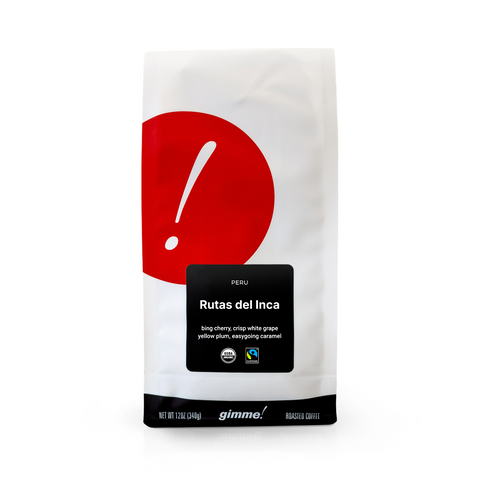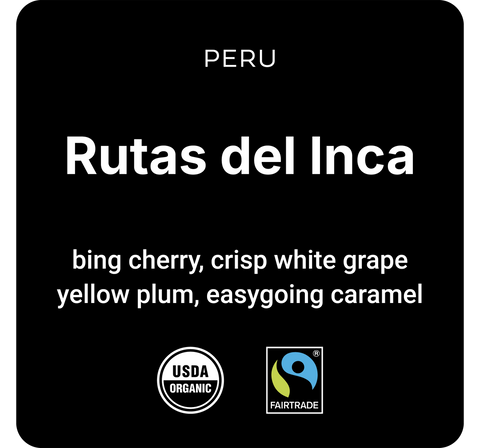What is Coffee (really)?
To put it quite simply, coffee is a seed of a tree that grows inside of a cherry. When the cherry fruit is ripe it is harvested and then the coffee seed is removed, dried, sorted, shipped, roasted, pulverized (ground) and then brewed in water. At its most basic level, the coffee you drink is brown cellulose water (yum!) that has been bought and sold multiple times before it ends up in your cup.
It is also one of the most complex food items in your kitchen. It has thousands of chemical compounds, volatile aromatics and perceivable acidities (sweetness). While coffee has been traded around the world for centuries and has tremendous historical and cultural significance, the shift in attitude toward the sensory attributes of coffee has occurred only in the last few decades. This new era of the coffee trade has given rise to opportunities for an agricultural product that provides the livelihoods for hundreds of millions of people across the planet. So how we approach procuring coffee, the complexity of a given value chain and how the various people within that chain are compensated financially matters… a lot.
Coffee is one of the most widely traded agricultural commodities in the world.
Between the coffee farm and the retail shelf, the value of coffee can increase well over 500%, and yet the distribution of that value is incredibly unequal, with the smallest share of the “pie” going to the folks that produce it.
It is estimated that only 10% of the coffee industry’s $200+ billion worth is earned by producing countries. Why is that?
The Coffee Belt
Commercially viable coffee nearly all grows in the global south, in a narrow band between the Tropic of Cancer and the Tropic of Capricorn commonly referred to as "The Coffee Belt". Two primary species of coffee, Canephora (also known as robusta or conilon) and Arabica are produced in historically colonized regions of the world that for centuries have had their land and people undervalued and over extracted.
Even though our roastery purchases <.00001% of global coffee production, shifting the paradigm of coffee’s value is still a pursuit worth taking.
Our Buying Baseline: Coffee from Cooperatives
95% of all coffee is produced by small family farms (often referred to as smallholders) of less than five hectares, or about twelve acres. This high percentage of smallholder production means that for the global coffee industry at large it is nearly impossible to achieve meaningful large-scale vertical integration from farms to roasting facilities. The political economy of the coffee value chain is such that multinational roasters and trading houses control most of the investment, coordination and power in how coffee is bought and sold in order to achieve economies of scale. It is estimated that the top five trading houses in the global north control the trade of 50% of the world’s raw, unroasted coffee. The asymmetrical and inequitable share of power, information and value distribution across the coffee value chain is a constant threat to coffee farmers, as well as the future of the industry.
Producer cooperatives are crucial rural businesses for smallholder farmers who would otherwise not have access to markets or have control over the sale of their production. Product aggregation, resource sharing, access to non-extractive finance and democratic practice are core aspects of producer cooperatives. Given the volume of smallholders and important services that coops provide, you might think producer cooperatives are ubiquitous.
But less than 30% of all smallholders globally are organized into co-ops. This is why we start here when sourcing coffee for our roster of single origins and blends.
Supporting Well-being: Cost of Sustainable Production and Living Income
As a Living Wage Certified Business, we believe that financial well-being is fundamental to healthy, sustainable investments.
Our commitment to sustainable incomes isn’t limited to the employees at Gimme, so we work with trade partners and organizations that place production costs and living income at the core of their model.
Did you know that daily market prices for coffee farmers in remote, mountainous regions around the world are set by commodities exchange in New York? Supply and demand play a fundamental role in the major price movements, but minute-by-minute manipulation can be attributed to any Joe Q. Hedge Fund that wants to make a few pennies in their portfolio. The fact that coffee prices do not reflect the costs to produce doesn’t sit well with us, and we’re guessing that if you’re taking the time to read this it doesn’t sit well with you either.
Hot Take: Direct Trade and Fairtrade are Not Mutually Exclusive.
Despite the prevailing narrative from the specialty coffee world since the advent of the World Barista Competition that quality differentiated coffee is The Key to long-term sustainability of our industry, we have seen that when enacted together the benefits of structural trade interventions like Fairtrade and the relational, quality-focused trade relationships like those touted as Direct Trade enhance sustainable outcomes. This is why we invest so much energy into sourcing coffee from coffee cooperatives that are part of the Fairtrade system. Because Fairtrade is a global intervention to an international system that provides a price floor, mandatory premiums and producer-centered trade requirements for all buyers of Fairtrade coffee, we believe it is a tide that lifts all ships upon which quality differentiated coffees can thrive.
















